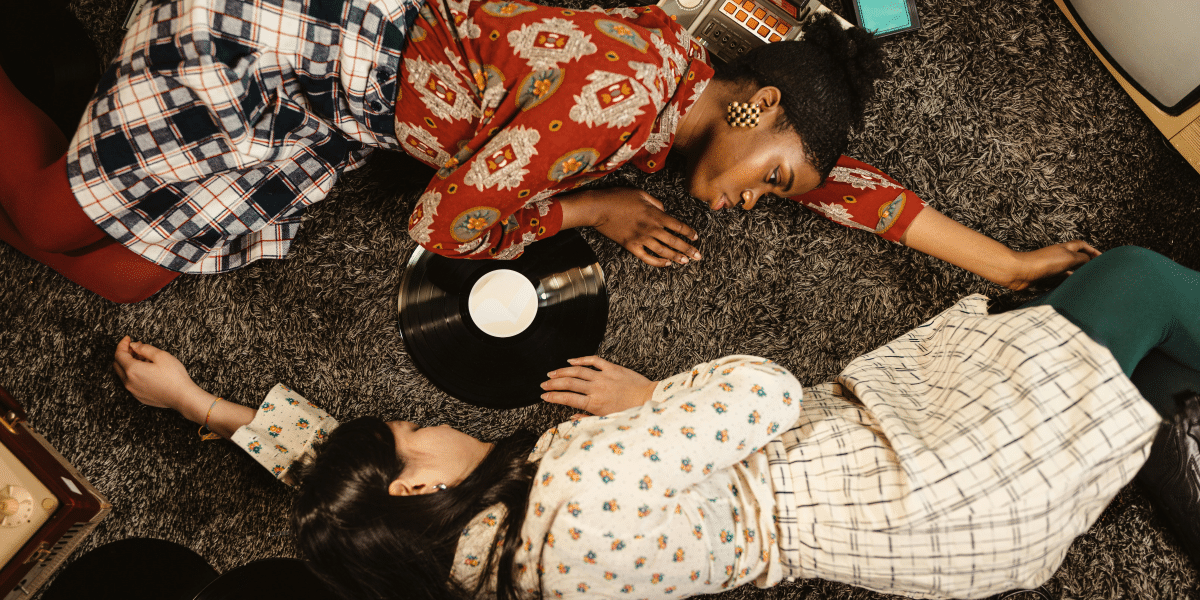According to times-standard.com, in 2014, a Gallup poll found that 58% of Americans still had a VHS player, but that number had dropped from 88% in 2005. The decrease is mainly because more people are using digital and streaming media instead.
Even though fewer people use VHS players, there’s still a group of folks who like them in 2024. Some keep VCRs for the memories, while others, especially younger people, collect VHS tapes.
The demand to convert old tapes to digital forms has surged in recent years. As technology advances and older media formats become obsolete, people are eager to preserve and revitalize their precious memories stored on VHS tapes.
Guide to Converting VHS to Digital: Exploring Your Options
Converting VHS to digital formats is becoming increasingly popular as people seek to preserve their memories for the future. Here’s a breakdown of some options you could include in your guide:
VHS to DVD Recorder: One straightforward option is using a VHS to DVD recorder. These devices typically connect directly to your VHS player and record the content onto a DVD. Once on DVD, you can then rip the content to your computer for digital storage.
VHS to Digital Converter: There are specialized VHS to digital converters available on the market. These devices often connect to your computer via USB and allow you to digitize your VHS tapes directly onto your computer’s hard drive. Some models even come with software for editing and enhancing the digitized footage.
Professional Conversion Services: If you prefer not to do it yourself, there are many professional services that specialize in converting VHS tapes to digital formats. They typically use high-quality equipment to ensure the best possible transfer of your tapes.
DIY Setup with Capture Card: For those who are tech-savvy, setting up a DIY conversion station with a VHS player, a capture card, and video editing software can be a cost-effective solution. The capture card connects your VHS player to your computer, allowing you to capture and edit the footage directly.
Cloud-Based Services: Some companies offer cloud-based VHS to digital conversion services. You send in your tapes, and they digitize them for you, providing you with digital files that you can access and download from anywhere.
Renting Equipment: If you only have a few tapes to convert, you might consider renting the necessary equipment instead of buying it outright. Some electronics stores or rental services offer VHS to digital conversion equipment for short-term use.
By exploring these options in your guide, you can provide readers with a comprehensive overview of the different methods available for converting VHS tapes to digital formats, allowing them to choose the option that best suits their needs and preferences.
Budgeting to Convert Old Films: Exploring Cost-Effective Options
When considering how much to spend to convert old films, it’s essential to weigh your options carefully. Depending on the method you choose, costs can vary significantly. If you opt for a DIY approach using a VHS to digital converter or a capture card setup, you might spend anywhere from $50 to $200, depending on the quality of the equipment you purchase.
Professional conversion services typically charge per tape, with prices ranging from $10 to $50 per tape, depending on factors like tape length and additional services such as cleaning and restoration. Cloud-based services often offer packages or per-tape pricing, with costs typically starting around $10 to $20 per tape. Renting equipment can be a budget-friendly option if you only have a few tapes to convert, with rental fees ranging from $20 to $50 per day. Ultimately, how much you should spend will depend on your budget and the quality of conversion you’re looking for.
When it comes to preserving cherished memories stored on old films, finding cost-effective yet reliable methods for conversion is paramount. By carefully budgeting and exploring various options, individuals can ensure that they achieve high-quality digital copies without breaking the bank. Conducting thorough research allows for the discovery of the best conversion services or equipment available within one’s budget. Whether opting for a DIY approach with VHS to digital converters or professional services, understanding the costs involved and the quality of results offered by each option is essential. With diligent research and careful consideration, individuals can confidently embark on the journey of converting their old films to digital formats, safeguarding precious memories for years to come.
Quality Considerations in DIY Film-to-Digital Conversion
The quality of DIY services and converters for converting old films to digital formats can vary depending on several factors. Firstly, the quality of the equipment used plays a significant role. Higher-end VHS to digital converters or capture cards tend to offer better results compared to lower-priced alternatives. Additionally, the condition of the VHS tapes being converted can impact the outcome.
Tapes that are well-maintained and free from damage typically produce better-quality digital copies. Moreover, the expertise of the person handling the conversion process also influences the results. Those with experience in video editing and conversion may achieve better outcomes compared to beginners. While DIY methods can be cost-effective, they may not always produce the same level of quality as professional conversion services, which often use specialized equipment and techniques to ensure optimal results.
Therefore, individuals considering DIY conversion should carefully research and invest in high-quality equipment, adhere to best practices, and be prepared to invest time and effort into the process to achieve satisfactory results.
In conclusion, while DIY methods for converting old films to digital formats can offer cost-effective solutions, the quality of the outcome depends on various factors such as equipment quality, tape condition, and user expertise.
While DIY approaches can yield satisfactory results with careful research, investment in quality equipment, and adherence to best practices, they may not always match the standards set by professional conversion services. Therefore, individuals should weigh their options carefully, considering both budgetary constraints and the importance of preserving the quality of their cherished memories. Whether opting for a DIY approach or professional services, the goal remains the same: to safeguard and revive precious moments captured on old films for generations to come.
Published by: Nelly Chavez

















